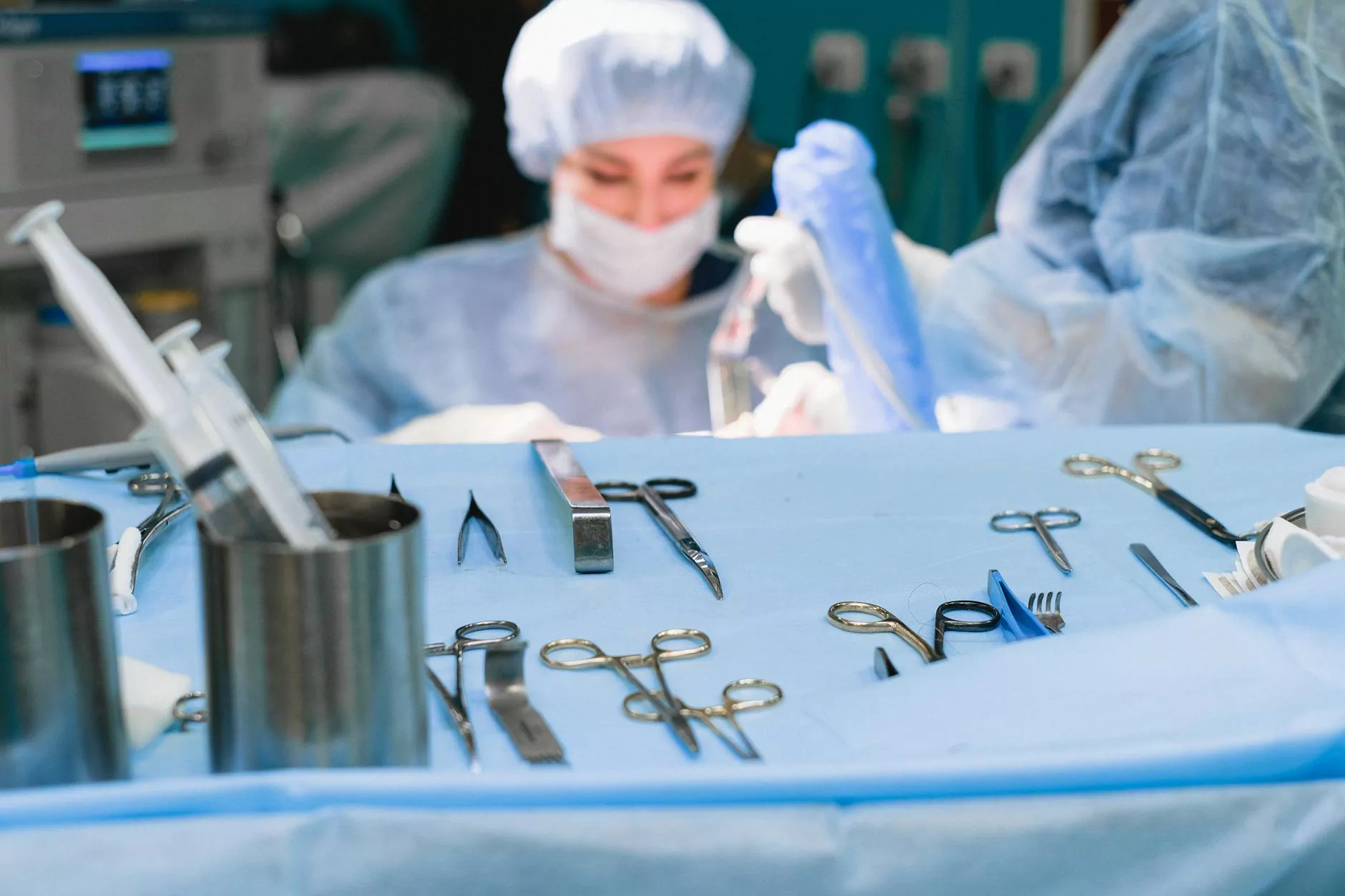Understanding Colon Cancer and Treatment Options

Colon cancer, also known as colorectal cancer, is a significant health concern worldwide. It arises from abnormal growths in the colon or rectum. As one of the leading causes of cancer-related deaths, early detection and effective treatment are vital. In this comprehensive article, we will explore the essential aspects of colon cancer treatment, the resources available at a colon cancer treatment center, and the importance of advanced care.
What is Colon Cancer?
Colon cancer originates in the cells of the colon, a part of the digestive system. It begins with the formation of polyps, which can become cancerous over time. Understanding the stages of colon cancer is crucial for treatment:
- Stage 0: Abnormal cells are found in the inner lining of the colon.
- Stage I: Cancer has grown into the walls of the colon but hasn't spread beyond it.
- Stage II: Cancer has spread to nearby tissues but not to the lymph nodes.
- Stage III: Cancer has spread to nearby lymph nodes.
- Stage IV: Cancer has spread to distant parts of the body, such as the liver or lungs.
Signs and Symptoms of Colon Cancer
Being aware of the symptoms is critical for early detection. Common signs include:
- Changes in bowel habits: Diarrhea, constipation, or changes in stool consistency.
- Blood in stool: Either bright red or dark in color.
- Abdominal discomfort: Cramping or persistent pain.
- Unintentional weight loss: Losing weight without trying.
- Fatigue: Continuous tiredness that doesn't improve with rest.
The Role of a Colon Cancer Treatment Center
A colon cancer treatment center offers specialized care tailored to each patient’s needs. These centers follow a multidisciplinary approach, ensuring that patients receive comprehensive care from various specialists. Here’s how a treatment center can help:
1. Comprehensive Diagnosis and Screening
Early detection is crucial in the fight against colon cancer. Treatment centers provide advanced screening options such as:
- Colonoscopies: A procedure that allows doctors to view the inside of the colon and rectum.
- Imaging tests: CT scans and MRIs help in assessing the extent of cancer.
- Biopsy: A definitive diagnosis is made through tissue sampling.
2. Personalized Treatment Plans
Every cancer case is unique, which is why personalized treatment plans are essential. At a colon cancer treatment center, oncologists develop tailored strategies considering:
- Type and stage of cancer.
- Patient's overall health and preferences.
- Potential side effects and goals of treatment.
3. Advanced Treatment Options
Effective treatment can involve a combination of therapies. Common options include:
- Surgery: The primary method to remove cancerous tissue.
- Chemotherapy: Uses drugs to kill cancer cells, often used before or after surgery.
- Radiation therapy: Uses high-energy waves to target cancer cells.
- Targeted Therapies: Focus on specific molecular targets associated with cancer.
- Immunotherapy: Boosts the body's immune system to help fight cancer.
Support Services Offered in Colon Cancer Treatment Centers
In addition to medical treatment, colon cancer treatment centers provide a variety of support services that are critical to a patient’s recovery:
1. Nutritional Counseling
A balanced diet is vital for recovery and maintaining health during treatment. Nutritionists at treatment centers can:
- Help design meal plans that provide the necessary nutrients.
- Advise on supplements that may be beneficial.
- Address dietary issues resulting from symptoms and side effects.
2. Psychological Support
Facing a cancer diagnosis can be emotionally taxing. Support groups and counseling services include:
- Individual therapy sessions.
- Group therapy with other cancer patients.
- Educational resources about coping strategies.
3. Survivorship Programs
After treatment, survivorship programs help individuals transition back to daily life. These programs may include:
- Regular follow-up appointments.
- Monitoring for recurrence of cancer.
- Workshops on lifestyle changes for long-term health.
Research and Innovation at Colon Cancer Treatment Centers
Continuous research is vital for improving treatment outcomes. Many colon cancer treatment centers are at the forefront of clinical trials, providing access to pioneering therapies. Patients can participate in:
- New drug trials: Testing innovative chemotherapy or immunotherapy drugs.
- Genetic studies: Exploring genetic links to colon cancer.
- Quality of life assessments: Researching how treatments can be improved.
Choosing the Right Colon Cancer Treatment Center
When diagnosed with colon cancer, selecting the right treatment center is crucial. Here are some factors to consider:
- Accreditations: Ensure the center is accredited by recognized health organizations.
- Multidisciplinary team: Confirm the availability of various specialists.
- Patient reviews: Look for testimonials and success stories from other patients.
- Accessibility: Consider the location and the ability to reach the center easily.
- Support services: Verify what additional support is available to patients and families.
Conclusion
Colon cancer is a formidable disease, but advances in treatment and support can lead to positive outcomes. By choosing a specialized colon cancer treatment center, patients can access comprehensive care tailored to their needs. With early detection, personalized treatment plans, and ongoing support, patients can face colon cancer with hope and resilience. To learn more and find a specialized center near you, consider visiting oncologicalsurgery.net for expert insights and guidance.









